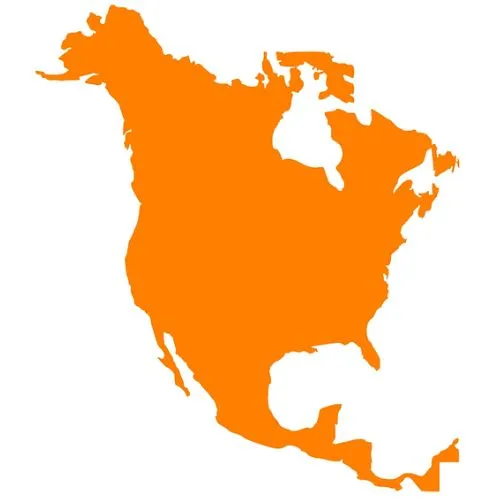Shipping From China
How Firida Help Your Shipping from China

Shipping from China to Germany
Shipping from China to France
Shipping from China to the UK
Shipping from China to Hungary
Shipping from China to Italy
Shipping from China to Latvia
Shipping from China to Lithuania
Shipping from China to Luxembourg
Shipping from China to Monaco
Shipping from China to Netherlands
Shipping from China to Norway
Shipping from China to Poland
Shipping from China to Belgium
Shipping from China to Czech
Shipping from China to Denmark
Shipping from China to Finland
Shipping from China to Portugal
Shipping from China to Russia
Shipping from China to Romania
Shipping from China to Spain
Shipping from China to Sweden
Shipping from China to Switzerland
Shipping from China to Ukraine
Shipping from China to Belarus

Shipping from China to Australia
Shipping from China to New Zealand
Shipping from China to Palau
Shipping from China to Solomon Islands
Shipping from China to Fiji
Shipping from China to Tuvalu
Shipping from China to Tonga
Shipping from China to Samoa
Shipping from China to Micronesia
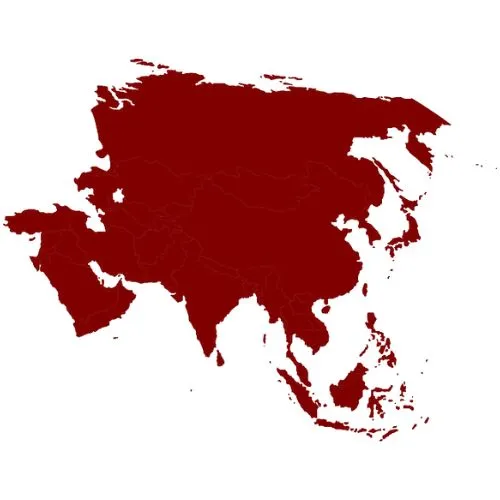
Shipping from China to Singapore
Shipping from China to Malaysia
Shipping from China to Thailand
Shipping from China to Philippines
Shipping from China to Indonisia
Shipping from China to Vietnam
Shipping from China to India
Shipping from China to Pakistan
Shipping from China to Japan
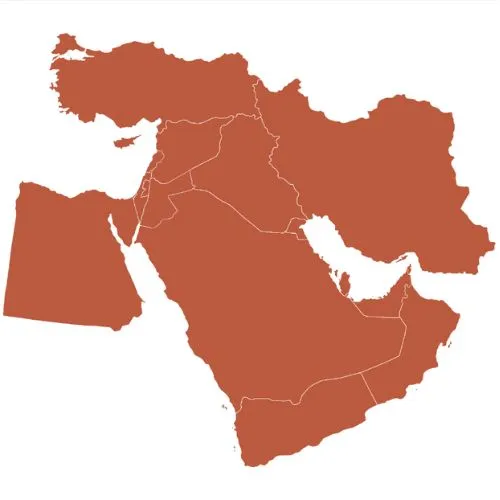
Shipping from China to UAE
Shipping from China to Saudi Arabia
Shipping from China to Qatar
Shipping from China to Egypt
Shipping from China to Iraq
Shipping from China to Iran
Shipping from China to Bahrain
Shipping from China to Kuwait
Shipping from China to Oman
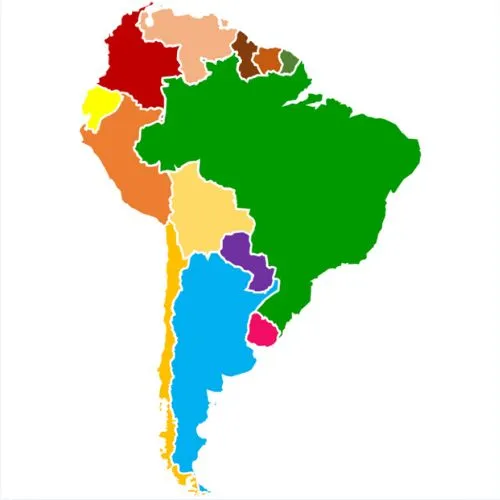
Shipping from China to Brazil
Shipping from China to Chile
Shipping from China to Uruguay
Shipping from China to Venezuela
Shipping from China to Paraguay
Shipping from China to Columbia
Shipping from China to Ecuador
Shipping from China to Peru
Shipping from China to Bolivia

Shipping from China to South Africa
Shipping from China to Nigeria
Shipping from China to Kenya
Shipping from China to Egypt
Shipping from China to Ghana
Shipping from China to Tanzania
Shipping from China to Uganda
Shipping from China to Ethiopia
Shipping from China to Morocco
Shipping from China to Algeria
Shipping from China to Angola
Shipping from China to Mozambique
Shipping from China to Senegal
Shipping from China to Zambia
Shipping from China to Namibia
Shipping from China to Madagascar
Shipping from China to Cameroon
Shipping from China to Rwanda
Let Firida handle your next shipment from China.
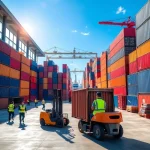
The Foundr's word for you
Shipping from China: The Complete Guide
You’re about to embark on a journey through the world of shipping from China, a crucial aspect of modern business that can make or break your success in the global marketplace. As e-commerce continues to boom and international trade flourishes, understanding the ins and outs of Chinese shipping becomes more vital than ever.
Navigating the complex waters of international logistics isn’t always smooth sailing. You’ll face challenges like choosing the right shipping method, deciphering costs, and dealing with customs regulations. But fear not! This guide is your compass, designed to steer you through these obstacles with confidence.
In the following sections, we’ll explore everything from selecting the perfect shipping method to understanding the nitty-gritty of costs. We’ll also dive into the world of freight forwarders and how they can be your allies in this journey. So, buckle up and get ready to become a master of shipping from China!
Choosing the Right Shipping Method
Air Freight vs. Sea Freight
When it comes to shipping from China, you’re often faced with a crucial decision: air or sea? Each has its pros and cons, and your choice can significantly impact your bottom line.
Air freight is the speedster of the shipping world. If you’re in a hurry to get your products, this is your go-to option. It’s ideal for high-value, low-volume goods or when you’re racing against time. However, this speed comes at a premium – air freight can cost up to five times more than sea freight.
On the flip side, sea freight is the tortoise in this race. It’s slower but much more cost-effective, especially for large volumes. If you’re shipping bulky items or have flexible timelines, sea freight could be your best bet. The trade-off? You’ll need to plan well in advance due to longer transit times.
Your decision will hinge on factors like urgency, budget, and the nature of your goods. Time-sensitive fashion items? Air might be worth the cost. Heavy machinery? Sea freight could save you a fortune.
Express Courier Services
Sometimes, you need things done yesterday. That’s where express courier services come in. Giants like DHL, FedEx, and UPS offer lightning-fast delivery for smaller packages.
These services are perfect when you’re dealing with samples, urgent documents, or high-value items that need special care. They offer door-to-door service, often with guaranteed delivery times. Plus, their extensive networks mean your package can reach almost anywhere in the world.
Keep in mind, though, that these services usually have limitations on package size and weight. Typically, they’re best for items under 150 lbs (68 kg). Anything larger, and you might need to look at other options.
Rail and Road Freight Options
Don’t overlook the power of good old-fashioned trains and trucks! Rail freight has seen a resurgence, especially for routes between China and Europe. It’s a happy medium between air and sea – faster than ships but cheaper than planes.
Road freight shines for nearby regions. If you’re shipping to countries bordering China, trucks can offer a cost-effective and relatively quick solution. It’s particularly useful for door-to-door services in these areas.
When comparing transit times and costs, rail and road often hit a sweet spot. They’re not as fast as air freight, but they’ll get your goods there quicker than a ship – and often at a more palatable price point.
Understanding Shipping Costs
Key Cost Factors
Shipping costs can sometimes feel like a black box, but understanding the key factors can help you crack the code. Weight and volume are the primary drivers – the heavier or bulkier your shipment, the more you’ll pay. This is why you’ll often hear about “dimensional weight” in shipping circles.
Distance plays a significant role too. The further your goods need to travel, the higher the cost. This is where choosing the right port of origin in China can make a difference.
Your chosen shipping method will also influence the overall cost. Remember our air vs. sea comparison? The same principle applies across all methods. Faster usually means pricier, so weigh your urgency against your budget.
Incoterms and Their Impact
Enter the world of Incoterms – the language of international trade. These standardized terms define the responsibilities of buyers and sellers in global transactions. Understanding them is crucial for managing your shipping costs effectively.
Three common Incoterms you’ll encounter are FOB (Free On Board), CIF (Cost, Insurance, and Freight), and EXW (Ex Works). Each allocates costs and risks differently between you and your supplier.
With FOB, your responsibility (and costs) start once the goods are loaded onto the ship. CIF means the seller covers costs up to your port, including insurance. EXW puts almost all responsibility on you, starting from the supplier’s warehouse.
Choosing the right Incoterm can significantly impact your overall shipping expenses, so choose wisely!
Hidden Costs to Consider
Beware the iceberg of shipping costs – what you see isn’t always what you get. Customs duties and taxes can add a substantial amount to your final bill. These vary by country and product type, so do your homework.
Don’t forget about documentation fees, handling charges, and insurance. These may seem small individually, but they can add up quickly.
Lastly, keep an eye on currency exchange rates. Fluctuations can affect your costs, especially for long-term contracts. Consider hedging strategies if you’re dealing with large volumes over time.
Selecting a Freight Forwarder
Role of Freight Forwarders
Think of freight forwarders as your shipping superheroes. They’re the experts who can navigate the complex logistics landscape on your behalf. From booking cargo space to handling customs clearance, they’ve got you covered.
Freight forwarders simplify the shipping process by acting as a single point of contact. Instead of juggling multiple parties, you deal with one entity that coordinates everything. This can save you time, money, and a lot of headaches.
Many forwarders offer value-added services too. Need warehousing? Packaging assistance? Insurance? Chances are, your freight forwarder can help with that.
Criteria for Choosing a Forwarder
Choosing the right freight forwarder is crucial. Look for experience – especially in your specific industry and with your target markets. A forwarder’s network is also key – the more extensive it is, the smoother your shipping experience is likely to be.
While competitive pricing is important, don’t make it your only criterion. Outstanding customer service can be worth its weight in gold when issues arise. Look for forwarders who are responsive, proactive, and transparent.
In today’s digital age, technology matters. A forwarder with robust tracking capabilities and user-friendly systems can make your life much easier. Real-time updates and easy access to documentation can save you countless hours of back-and-forth communication.
Top Chinese Freight Forwarders
China boasts numerous reputable freight forwarders. Companies like Sinotrans, Kerry Logistics, and Apex Logistics have strong track records in international shipping.
Each forwarder has its strengths. Some excel in specific routes or modes of transport, while others might specialize in certain types of goods. Do your research to find the best fit for your needs.
For more in-depth information, consider checking industry publications or online forums. Websites like Freightos or Freightwave often have up-to-date information and reviews on freight forwarders.
Conclusion
Shipping from China doesn’t have to be a daunting task. By understanding your options, managing costs effectively, and partnering with the right freight forwarder, you can turn it into a competitive advantage for your business.
Remember, careful planning is key. Take the time to assess your needs, research your options, and make informed decisions. Don’t hesitate to seek professional advice when needed – the right expertise can save you money and headaches in the long run.
Your next steps? Start by evaluating your current shipping strategies. Are there areas where you could optimize? Perhaps it’s time to reassess your choice of shipping method or explore new freight forwarder options.
With the knowledge you’ve gained from this guide, you’re well-equipped to take your shipping game to the next level. Happy shipping!

